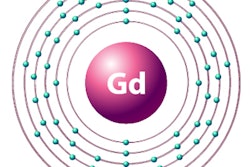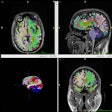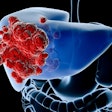
Patients use Twitter to post feedback about their MRI experiences, and although more than 60% of those tweets mention gadolinium-based contrast agents (GBCAs), less than 10% specifically address gadolinium retention, according to a case study published August 18 in the Journal of the American College of Radiology.
The study results show that the issue of gadolinium retention isn't the primary one for patients, wrote a group of researchers led by Dr. Lysa Huneault of the Ottawa Hospital in Ontario, Canada.
"[We found that] a minority of GBCA-related tweets specifically mentioned gadolinium retention," the team wrote.
Concern about the safety of GBCAs has increased in recent years, particularly regarding the question of whether gadolinium is retained in the body for long periods of time. Patients report symptoms they believe are caused by gadolinium retention to regulatory bodies such as the U.S. Food and Drug Administration (FDA), but these reports are few compared with the number of GBCA-enhanced MRI exams that are conducted each year, Huneault and colleagues noted.
So in the new study, the group sought to explore whether the low level of reporting regarding gadolinium retention was due to ineffective reporting mechanisms, as well as whether reporting happens more actively on social media outlets such as Twitter.
To do this, the investigators conducted a search of English-only tweets with keywords "MRI," "contrast," or "gadolinium" posted between May and December 2019. The survey did not include tweets posted by advocacy groups, physicians, or healthcare providers.
Huneault's team ended up with 562 tweets that met study criteria. Of these, 64.9% had to do with GBCA and 8.3% with gadolinium retention. Most of the tweets (56.4%) were categorized as "single theme."
Of those single-theme tweets related to GBCA, the researchers noted three broad categories:
- Acute events such as contrast leakage, allergic reactions, changes in kidney function
- Symptoms related to gadolinium retention
- Considerations such as consent, impact on breastfeeding, and medical errors
Of the GBCA-related tweets, 12.9% described gadolinium retention. Of these, 40.4% had to do with specific symptoms, while 34% listed general concerns and 25.5% offered the patient's "perceived diagnosis," the team noted.
| Topics of tweets that include keywords "MRI," "contrast," or "gadolinium" | ||
| Themes | Number | Percentage |
| Top 3 overall (562 tweets) | ||
| Describing MRI with contrast as an imaging exam | 107 | 19% |
| Impact on diagnosis and management | 77 | 13.7% |
| Needle or IV insertion issue | 62 | 11% |
| Top GBCA-related themes (365 tweets) | ||
| Acute events: Needle insertion issue | 62 | 17% |
| Gadolinium retention symptoms or concerns | 47 | 12.9% |
| Technical considerations: general questions | 40 | 11% |
Gadolinium retention just doesn't seem like it's on patients' radar, and the study suggests that perhaps underreporting of symptoms to entities like the FDA isn't occurring, according to the authors.
"Our case study shows gadolinium retention is rarely mentioned on Twitter and generally has low visibility, and these data suggest the low proportion of self-reported symptoms to federal organizations ... do not represent systematic underreporting," they wrote.




.fFmgij6Hin.png?auto=compress%2Cformat&fit=crop&h=100&q=70&w=100)




.fFmgij6Hin.png?auto=compress%2Cformat&fit=crop&h=167&q=70&w=250)











